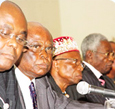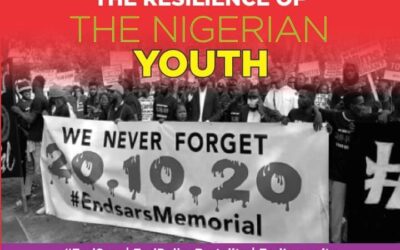Nigeria set up a new panel to look at how to bring peace to the restive Niger Delta on Monday, but militants in the oil-producing region dismissed it as no more likely to succeed than failed predecessors.
Two and a half years after the region's main militant group MEND began a campaign of attacks which have shut down around a fifth of output from Africa's biggest oil industry, peace in the mangrove-lined creeks remains as elusive as ever.
Vice-President Goodluck Jonathan, himself from the delta, is due to inaugurate the 40-man panel — including former ministers, lawyers, activists and academics — whose task is "to review and distil all previous reports" on the Niger Delta.
But such committees and the promise of talks have repeatedly failed to stabilise the heartland of Nigeria's oil industry.
Heavily-armed militants roam in speedboats, saying they are fighting for local autonomy over the oil wealth, while criminal syndicates grow rich from oil siphoned from sabotaged pipelines.
People from the delta joke that trouble only really started when they went to far-off Abuja for peace talks and saw the gleaming capital that crude oil from under their impoverished villages had built.
The Movement for the Emancipation of the Niger Delta (MEND) has already dismissed the latest panel as "the appetiser on the menu of another banquet of deceit".
"Peace in the Niger Delta will be determined from the mangrove creeks and not from air-conditioned rooms in Abuja," it said in an e-mailed statement.
The group staged its most spectacular assault yet in June, when it forced Royal Dutch Shell to shut down its main offshore Bonga oilfield. It has threatened more attacks.
BREAKDOWN
Kidnapping for ransom by criminal gangs taking advantage of the breakdown in law and order is rife, creating an additional security headache for foreign oil companies.
Gunmen killed a crew member of a supply vessel operated by a unit of Italy's Eni and abducted another, the army said on Sunday, while relatives of local politicians and businessmen, including a toddler, have been seized in recent weeks.
When President Umaru Yar'Adua took office in Africa's most populous nation in May last year he moved quickly to try to address the unrest, freeing two jailed militant leaders and drawing up plans for formal talks.
Jonathan, chosen as vice-president partly because of his origins in the delta, launched a "Peace and Reconciliation Committee" in July last year after meeting with rebel leaders and activists in a remote camp in the creeks.
But there has been little tangible progress since then.
Plans for a peace summit promised by Yar'Adua fell into disarray in July after a key mediator leading the committee meant to organise the talks resigned.
Analysts question how effective the new committee will be.
"Aside from the pure logistics of getting the right stakeholders together, we think it's an optimistic project," said Peter Sharwood-Smith, Nigeria country manager for risk management consultancy Energic Solutions.
"The risks of marginalising or even precluding one or more of the protagonists may exacerbate rather than alleviate the issue. Given the historical precedent, we think it'll be perceived as a PR exercise rather than a cogent attempt at reconciliation," he told Reuters.
REUTERS News
By Nick Tattersall
08 September 2008




